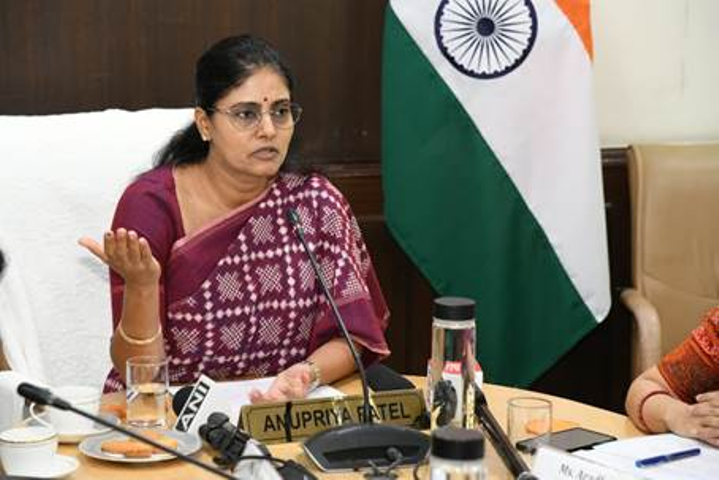In observance of World Population Day, Smt. Anupriya Patel, Union Minister of State for Health and Family Welfare, convened a meeting with public health experts on July 18, 2024. The theme of the symposium was “Reaching the Last Mile for Ensuring Healthy Timing and Spacing between Pregnancies: Issues & Challenges.”
Minister Patel emphasized the importance of adequately spaced pregnancies in enhancing maternal and child health outcomes. She noted that such spacing can reduce health risks and empower women and families to make informed reproductive health choices. Highlighting the government's initiatives, she mentioned the Pradhan Mantri Surakshit Matritva Abhiyan (PMSMA), Extended PMSMA, Anemia Mukt Bharat Abhiyan, and the Post-Partum Family Planning Programme. She also reported a reduction in maternal mortality from over 130 to 97 per 100,000 births due to these efforts.
Patel discussed the role of states in involving men in family planning and stressed the need for effective communication strategies. She asserted that achieving a Viksit Bharat by 2047 relies on empowering women, emphasizing that healthy timing and spacing between pregnancies are crucial for women’s health.
Smt. Aradhana Patnaik, Additional Secretary and Mission Director of the National Health Mission (NHM), highlighted India's progress, noting a total fertility rate (TFR) of 2.0 with 31 States/UTs meeting replacement levels. However, she identified the need for strategies to bring the TFR under replacement levels in the remaining five states.
The symposium featured insights from public health experts, including:
- Dr. Kalpana Apte, Head of the Family Planning Association, India, who emphasized the need for male participation and grassroots support in family planning.
- Dr. Saswati Das, Sexual and Reproductive Health Specialist at UNFPA India, who discussed global best practices in family planning.
- Dr. Chander Shekhar, Professor and Head of the Department of Fertility and Social Demography at the International Institute for Population Sciences (IIPS), Mumbai, who addressed geographic disparities and unmet needs.
- Ms. Moni Sinha Sagar, Division Chief for the Family Health/RMNCHA Division at USAID India, who underscored the importance of expanding contraceptive options.
- Dr. Somesh Kumar, Country Director at Jhpiego India, who spoke on the need to engage youth with newer contraceptives.
- Prof. Sudha Prasad, Director and Chief of Matritava Advanced IVF & Maternity Centre, Gurugram, who highlighted the need for a full range of contraceptive options to address maternal mortality and nutritional deficiencies.
- Dr. S.K. Sikdar, former Advisor on Family Planning and Maternal Health at MoHFW, who shared experiences and future plans for family planning.
The discussion covered a range of topics including the need for male involvement, the use of data, global best practices, and the introduction of new contraceptives. Experts agreed on the importance of providing adolescents with accurate information to enable informed decision-making and improve access to family planning services.
Minister Patel appreciated the experts' dedication and outlined a roadmap for reaching underserved areas with low family planning uptake. She emphasized mapping regions with low service utilization, enhancing social and behavior change communication, and involving frontline workers in these efforts to achieve successful outcomes.
Smt. Meera Srivastava, Joint Secretary (RCH), and other senior officials from the Union Health Ministry were also present at the meeting.

